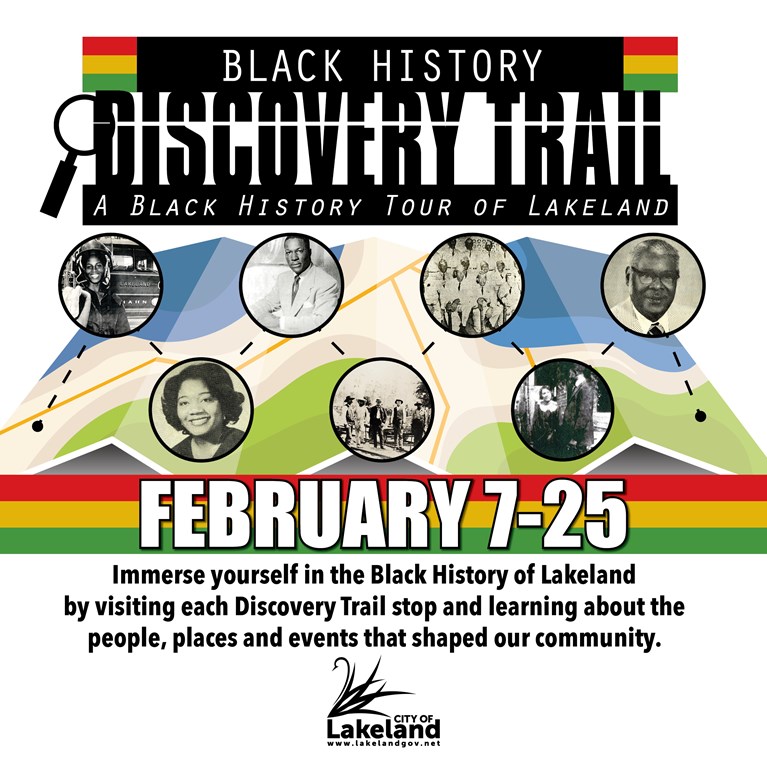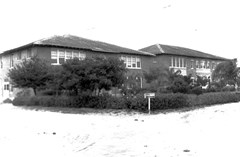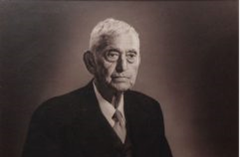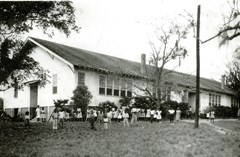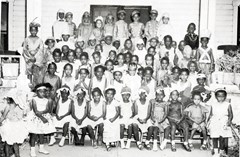Click photos to expand and view captions
In April of 1943, an African-American auxiliary police force was established under the leadership of Paul A. Diggs (1890-1963) as part of the Civilian Defense Council. Their nightly neighborhood patrols helped law enforcement officers keep order. Members of the auxiliary were given credentials, sworn in, and furnished uniforms by the City. According to Diggs, they were the only such organization in the state of Florida that was authorized fully to make arrests. He also emphasized that the members of the group were fostering good relations between the black community and the all-white police staff. The Paul A. Diggs Neighborhood is named in his honor.
The Lakeland Police Department hired their first African-American police officers in 1954—Thomas E. Hodge, Edgar T. Pickett, Jr., Samuel L. King, and Samuel L Williams. Many restrictions were placed on these newly-appointed officers due to the racial segregation of the time. These officers were not allowed to arrest white offenders without white officers present. They also had to use separate restroom facilities and locker rooms and could not provide security during parades in the white community. Despite these limitations, these officers rose above with distinction. Mr. Edgar T. Pickett went on to become a state-renowned forensics officer and was recognized by the Lakeland Police Department with the naming of their fingerprinting lab in his honor.
Forging ahead from the trailblazing efforts of the African-American police officers of 1954, Assistant Chief Clarence Grier joined the Lakeland Police Department in 1963 rising to the rank of Assistant Chief of Police and honorably retiring in 1997. Lakeland’s second African-American Assistant Chief of Police was Assistant Chief Charles Thompson who came to Lakeland in 2004 after a long-decorated career in law enforcement from South Florida. Assistant Chief Thompson served Lakeland until retiring in 2013.
The current, highest-ranking African-American officer of the Lakeland Police Department is Captain Marvin Tarver, beginning his service in 1996 and presently assigned as the Commanding Officer of the Community Services Division.













